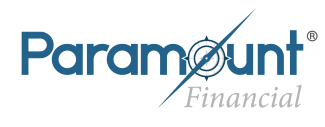Considering a Roth Conversion?
Here Are 3 Areas to Evaluate
If you’re like many savers, you may be using accounts like 401(k)s or IRAs to save for retirement. These are "qualified accounts," meaning you contribute pre-tax dollars and pay taxes when you withdraw the money in retirement.
A Roth Conversion involves moving funds from a qualified account into a Roth IRA or Roth 401(k). With Roth accounts, you pay taxes up front—but qualified withdrawals are tax-free in retirement.
Before converting, here are three areas you may want to evaluate:
1. Your Total Potential Tax Burden
Key Question: Will I pay more in total taxes if I keep my IRA or if I convert to a Roth?
This depends on your beliefs about future tax rates. If you think tax rates may go up, paying taxes now through a Roth Conversion could make sense. Comparing scenarios with your financial professional can help estimate the long-term tax difference.
2. Potential “Tax Drift” During the Conversion
Key Question: Will converting push me into a higher tax bracket, and by how much?
Converting increases your taxable income for the year, which could move you into a higher bracket. That means part of your conversion could be taxed at a higher rate—something to weigh against the long-term benefit of tax-free withdrawals.
3. Impact on Government Fees and Surcharges
Key Question: Will converting affect my Medicare premiums or other fees?
Medicare premiums (Part B & D) are based on your income. A Roth Conversion could raise your Modified Adjusted Gross Income (MAGI) temporarily, increasing fees like IRMAA (Income-Related Monthly Adjustment Amount). However, Roth withdrawals in retirement do not count toward MAGI, potentially lowering future IRMAA costs.
A Balanced Approach
When evaluating a Roth Conversion, consider two main decisions:
- Should I convert at all?
- If so, how can I spread the conversion over time to minimize taxes and fees?
Many savers choose to convert gradually to reduce the impact on their income taxes and government fees.
Questions to Discuss With Your Financial Professional:
- Are my taxes likely to be lower, the same, or higher in retirement?
- What is my total estimated tax burden if I stay in my IRA vs. convert to a Roth?
- Will I experience Tax or IRMAA Drift if I convert? How can I minimize those impacts?
Final Thoughts
A Roth Conversion can offer long-term tax benefits—but it’s important to understand all the implications. Working with a financial professional can help you evaluate the pros and cons, and structure a plan that fits your goals.
Disclosures: This information is for educational purposes only and is not tax, legal, or investment advice. Be sure to consult your own qualified professionals before making any decisions.
